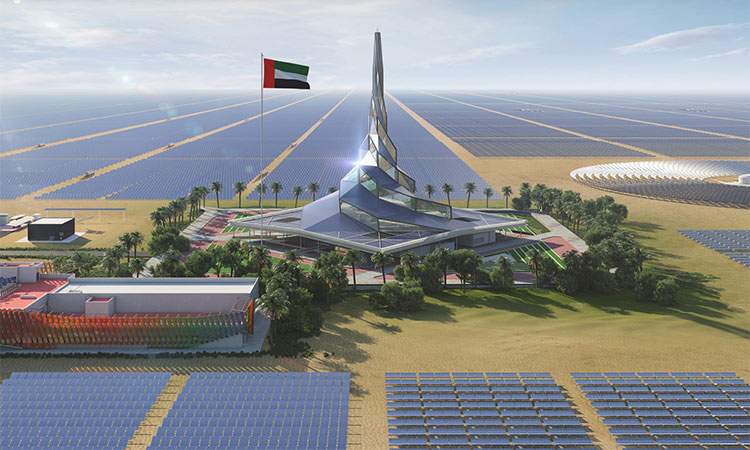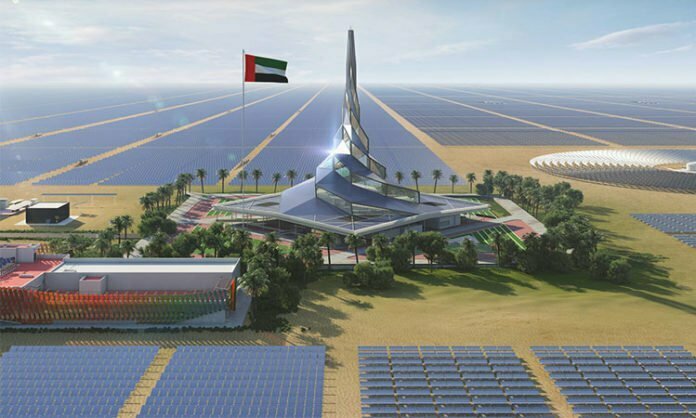[ad_1]

Mohammed bin Rashid Solar Park.
Recently, the circular economy has become a concept, rapidly gaining significance in several countries, including the UAE.
A circular economy is different from a linear economy. A linear economy is an economic system based on a “take-it-dispose” plan that has no place in today’s progressive and sustainability-focused society. On the other hand, a circular economy is an economic system that aims to eliminate waste and use resources consistently, thereby reducing a country’s carbon footprint and increasing its economic benefits. For example, according to the World Economic Forum, a circular economy could generate more than $4.5 trillion in economic benefits by 2030 if businesses encourage the development of circular supply chains to increase the speed of recycling, reuse and remanufacturing.
Furthermore, the circular economy is based on a “closed loop” production system, which means that everything extracted from nature is recycled and returned to nature. So make recycling a core aspect of this economic model. Furthermore, the circular economy model is driven by two important forces, the sustainable production of resources and the careful management of the demand for those resources.
Due to its benefits, many countries are transitioning from a linear to a circular economy. With the same motivation, the UAE has made a considerable commitment to adopting a circular economy.
The UAE is pursuing a sustainable development path with several targets including renewable power generation and alternative energy, net zero emissions and zero waste, among others. However, these goals cannot be achieved individually, and a holistic approach is required to address them, so adopting a circular economy is an essential step.
In addition to assisting in achieving its agenda and goals, the adoption of a circular economy is also necessary for reasons such as economic growth. By reducing wasteful consumption and extracting value from waste, a circular economy can boost GDP growth in the UAE and bring environmental and social benefits to the country.
The UAE took its first steps towards a circular economy model in 2018 when camel dung began to be used as fuel in a cement plant in Ras Al Khaimah. Since then, more than 100,000 tons of camel dung from 6,000 camels have been used for fuel production, reducing carbon emissions by nearly 18,000 tons and reducing fuel costs for cement plants.
In addition, the UAE signed its first circular economy plan in April 2019 and established the Circular Economy Innovation Alliance to enable a closed-loop economy.
In November 2019, the UAE took another step towards this model by signing the World Economic Forum’s Scale 360 initiative, which aims to capitalize on the Fourth Industrial Revolution by working with governments, businesses, civil society organisations Technology accelerates the circular economy, and entrepreneurs around the world. This shift is expected to increase economic output by $4.5 trillion by 2030.
In addition, the UAE’s first circular economy committee was established two years ago to launch the UAE’s national strategy and policy on circular economy. Approved last year, the policy demonstrates the country’s commitment to sustainable governance and optimal use of natural resources in the manufacturing, food, infrastructure and transport sectors. In particular, it will increase economic growth, employment opportunities, innovation, competitiveness and the availability of raw materials.
The above-mentioned efforts and steps by the UAE are essential to achieve the required transition. However, forming strategic alliances with international partners with the required expertise and experience can also help to accelerate the adoption of the circular economy. For example, the UK ranks second in the European Circular Economy Index, establishing itself as a leader in the circular economy system. It integrates smart systems at the city level and compiles a map of resources and initiatives based on circular economy models to help organizations apply current knowledge and proven practices. In short, the circular economy has advantages over the linear economy, and its adoption is a hot topic in countries around the world, including the UAE. The UAE has taken the necessary steps to implement this economic model, but working with its allies will accelerate its adoption of the circular economy.
[ad_2]
Source link



